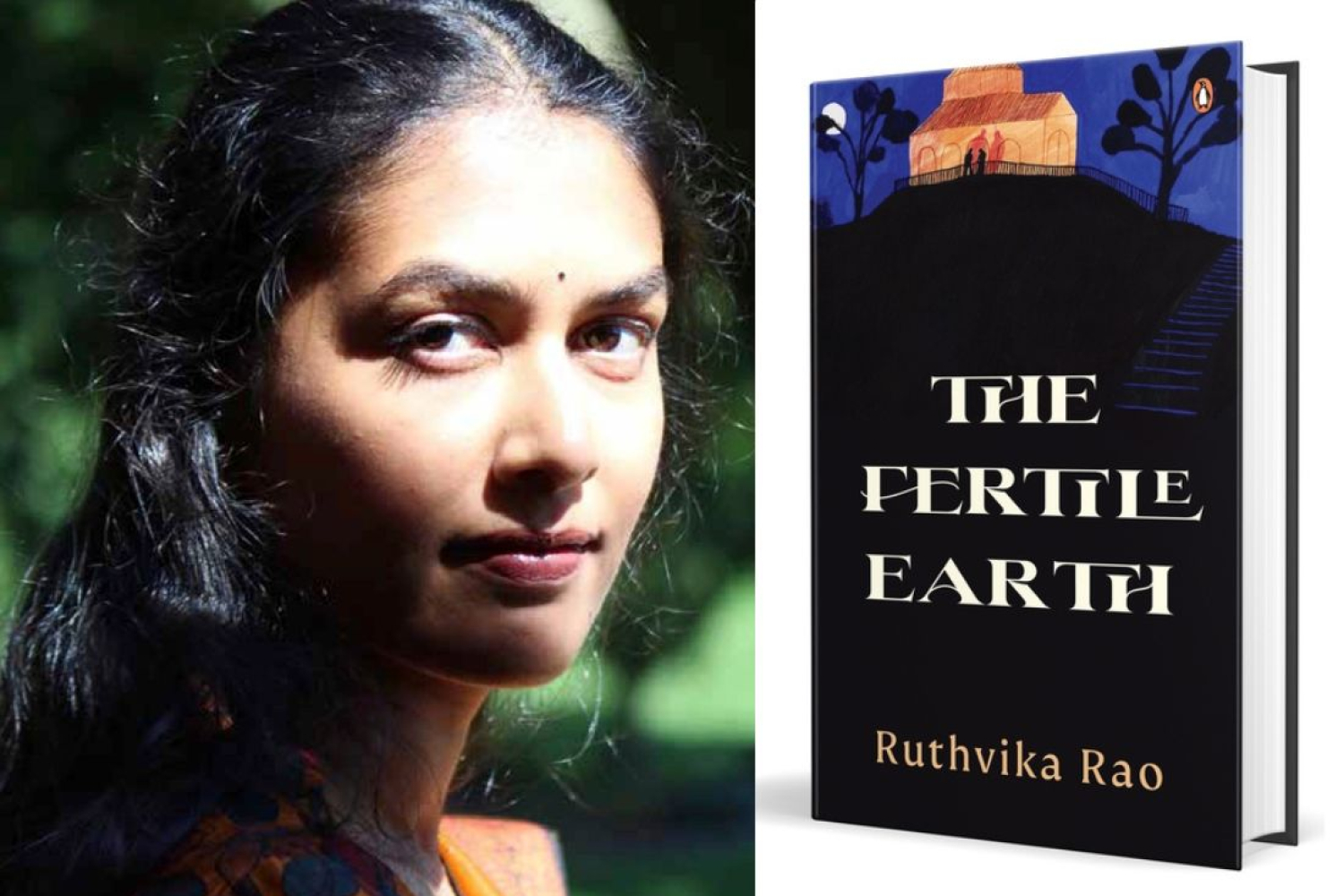

Ruthvika Rao’s novel The Fertile Earth intricately weaves the personal and the historical against the backdrop of post-Partition India, spanning from 1955 to 1990. The novel follows the lives of two families—the Deshmukhs and Pichamma’s family—beginning in 1970 and delving back to 1955 to reveal their intertwined fates. Rao’s characters evolve naturally through the narrative, shaped by their experiences and interactions, mirroring the way a reader uncovers a story’s depth.
Through a meticulous yet organic research process, Rao navigates the intersections of caste, land, and societal constraints, bringing to life the rawness and vibrancy of her characters’ experiences. The Fertile Earth is not just a historical narrative but a deeply immersive exploration of personal and collective histories.
INSPIRATION
I was looking for an idea to start a novel, and I came across an archival newspaper clipping from 1970. The piece was about Naxalite violence in the rural countryside in India, and accompanying the story was a photograph of a field with something in the center of the photo. I had to read the caption before I understood what it was—a severed head, of a landlord who had been executed by the Naxals, and put on display in the village. It was a horrifying image and I never forgot it. And I never forgot that the piece was published in a foreign newspaper. The point of view of an outsider. The photograph and the point of view of the photograph both shaped the opening of the novel, and that’s often the hardest part of writing a novel: beginning it and beginning it well, in a way that it exerts a magnetic pull on the writer and the reader, and the early decisions made in the opening chapters become permanent decisions. It had to go to 1990 before I felt that the novel was complete.
CHARACTER DEVELOPMENT
Character development happened in stages. It is impossible to know who they are in the beginning, it is impossible plan or map out a character beforehand; in my reading experience I often feel cheated out of a rewarding reading experience when things seem ‘pre-set’ in this way. I tried to replicate the reading experience in the writing i.e., I got to know the characters gradually, allowed their decisions to shape the story and not the other way around. Yes the novel begins at the end, but while writing it I never knew how I would actually arrive at that end.
OPENING SCENE
This connects to the point of view of the archival photograph that inspired the opening. Kanakam is a sort of outsider-insider, and for the reader: a place from where to do the looking. He is curious, willing to be lead one way or other, and that’s always a good starting place for any book, when as a reader your curiosity is heightened and you are willing and open to what the book has to say.
THE PIVOTAL EVENT OF TIGER HUNT
I knew that I needed a way for my four main characters to be together, away from the social structure of their surroundings—they are children when we first meet them, and I wanted a chance for them to just be that: children. And children love adventure. It is hard to explain how imagination and memory interact, but one of my beloved childhood books is ‘Rusty and the Tiger’ by Ruskin Bond. It has a man-eating tiger in it. PossiblyI drew inspiration from this book. Or it could be because tiger-claw pendants are worn as part of traditional jewelry in Telangana and Andhra Pradesh, and I drew inspiration from that.
RESEARCH PROCESS
I think there is always a real possibility that research bleeds the life out of fiction; by that I mean something similar in what I said about characters seeming preset. I did my best to imagine my characters are fully dimensional human beings, with flaws, under pressure of societal strictures, but still fully alive in the way they challenge these strictures. I have found, in my search for suitable research texts, that oral histories and folk songs from Telangana carried a rawness of lived experience, rich with a life-force that did not exist in other texts, and I was grateful for my ability to read and write Telugu, without which I could not have had access to these sources.
Words Paridhi Badgotri
Date 30.09.2024